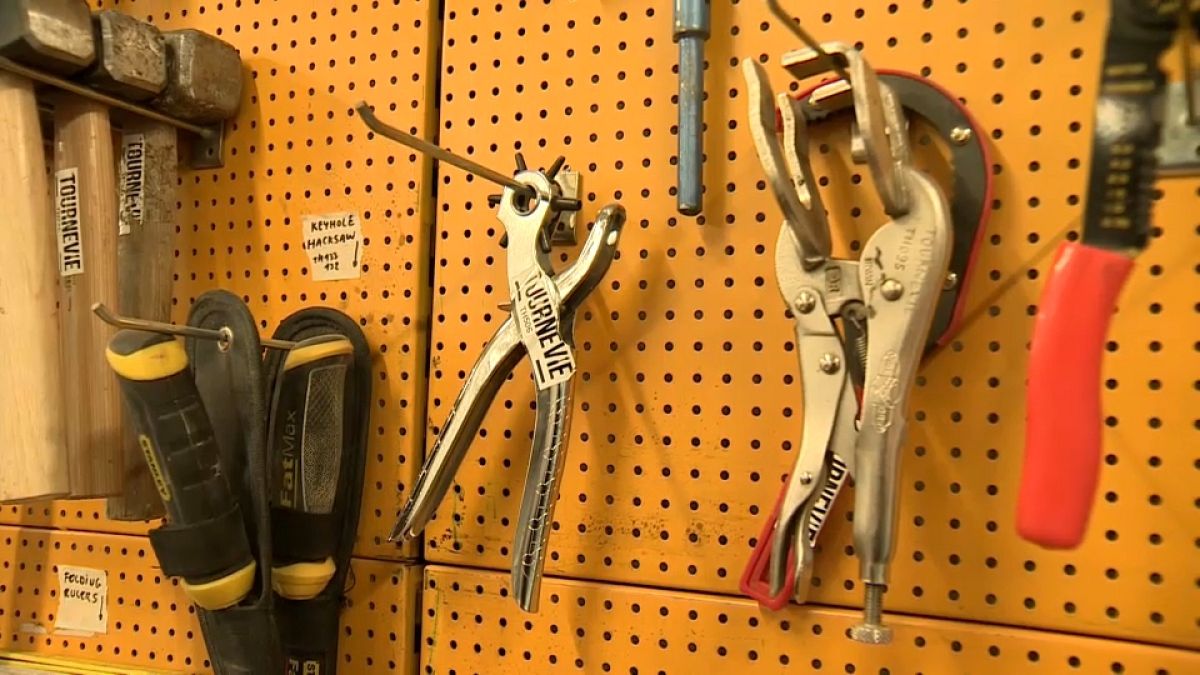The aim is to limit the use of natural resources and create jobs and growth that is more sustainable.
The European Commission will lay out its plans on Wednesday for the EU's transition to a more circular economy as it attempts to move away from unneccesary waste and towards long-term sustainability.
Brussels says it is one of the main parts of its goal in achieving the bloc's 2050 climate neutrality target as well as halting biodiversity loss.
One organisation in Belgium, La Tournevie, which has created a tool library, is already ahead of the curve.
This circular economy project lends tools to citizens as a way to reduce the buying of new ones and promote reusing and repairing.
According to Olivier Beys from La Tournevie, the idea is focused on providing high quality tools to people, so they avoid buying cheap and poor quality stuff that might never be used again.
"So basically, our big idea, which exists for a long time, is to just share the tools and share the cost with a large number of people in this case, four or five hundred people," Beys told Euronews. "And that that allowed us to cater to everyone's needs while also stimulating a repair economy, stimulating companies who make high quality tools rather than stimulating the ones who create poor quality.
"So that was sort of the idea and to make it accessible for everyone and not just a small group of people with a lot of money."
The project started in 2015 and today has more than 400 subscribers that pay €40 per year to take the tools home as many times as they want.
There are tools for working with wood, metal and even welding -- just some of the things that can be borrowed in this Brussels tool library.
Helping the environment is one of the obvious benefits to this approach, but not the only one, as Jean-Pierre Schweitzer from the European Environmental Bureau explains.
He says Europe is entering an age of uncertainty and risk, and a more circular economy can help to avoid any possible disruption.
"Having the possibility to repair and make the products -- the goods we already own -- last longer is an important question for resilience, of course, because if you can access spare parts locally rather than having to import them from the other side of the globe, this means that at a local scale where you have more control of your supply chain, you can be more resilient," Schweitzer told Euronews. "So, this is definitely another benefit from the circular economy".
The European Commission is also working on how to implement a circular economy in the textile and construction sectors.
